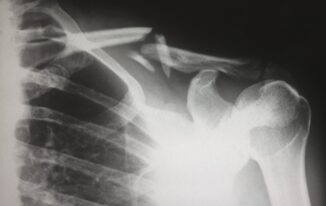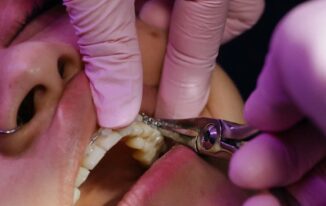Addiction is a complex and often overwhelming challenge that affects millions of peopleworldwide. However, new and innovative approaches are making it possible for individuals to break free from the cycle of addiction and lead healthier, more fulfilling lives. With advancements in mental health treatments, technology, and holistic care, there are now more options than ever to support those seeking recovery.

1. The Role of Mental Health Clinics in Addiction Recovery
Mental health plays a critical role in the battle against addiction. Many individuals struggling with substance abuse also suffer from underlying mental health disorders such as anxiety, depression, or PTSD. These co-occurring disorders must be addressed to provide a comprehensive approach to recovery. Mental health clinics that specialize in treating both addiction and mental health disorders offer integrated care, which is essential for long-term recovery. Programs like those at Camelback Recovery provide a safe and supportive environment where individuals can receive personalized therapy and treatment plans. These clinics often utilize a combination of psychotherapy, medication management, and other therapeutic interventions to address the root causes of addiction while promoting emotional healing.
2. Cognitive Behavioral Therapy (CBT)
Cognitive Behavioral Therapy (CBT) is one of the most widely used approaches in addiction treatment. It helps individuals identify and change negative thought patterns that contribute to addictive behaviors. Through CBT, patients learn to develop healthier coping strategies and build resilience to triggers that may lead to substance use.
CBT is effective for treating a variety of addictions, including alcohol, drugs, and gambling. By focusing on cognitive restructuring, individuals are empowered to break the mental patterns that perpetuate their addiction. This therapeutic method is often combined with other treatments to provide a well-rounded approach to recovery.
3. Mindfulness and Meditation Practices

In recent years, mindfulness and meditation have gained recognition as powerful tools in addiction recovery. These practices encourage individuals to live in the present moment, helping them become more aware of their thoughts, emotions, and behaviors. Mindfulness can reduce stress, improve emotional regulation, and decrease cravings by encouraging a non-judgmental awareness of one’s experiences.
Mindfulness-based interventions, such as Mindfulness-Based Stress Reduction (MBSR) or Mindfulness-Based Cognitive Therapy (MBCT), are increasingly being integrated into addiction recovery programs. These practices help individuals develop a healthier relationship with their thoughts and feelings, providing them with tools to manage cravings and prevent relapse.
4. Holistic Approaches to Treatment
Holistic approaches to addiction treatment focus on healing the whole person—body, mind, and spirit. These treatments often incorporate alternative therapies such as yoga, acupuncture, nutritional counseling, and art therapy. The goal of holistic treatment is to address the physical, emotional, and spiritual aspects of addiction, providing a more balanced and integrative approach to recovery.
For example, yoga and exercise can help individuals reconnect with their bodies and reduce stress, while acupuncture may alleviate withdrawal symptoms and cravings. Nutritional counseling ensures that individuals receive the necessary nutrients to support their recovery, and creative therapies like art or music allow individuals to express themselves in a non-verbal way. These holistic methods complement traditional addiction treatment and provide a well-rounded approach to healing.
5. Technology-Assisted Recovery Programs
The rise of technology has opened up new avenues for addiction treatment, making support more accessible than ever before. Technology-assisted recovery programs, such as teletherapy and mobile health apps, provide individuals with continuous support no matter where they are. Teletherapy allows patients to engage in counseling sessions remotely, which is especially beneficial for those living in rural areas or with limited access to treatment centers.
Mobile apps designed for addiction recovery often feature tools for tracking progress, managing cravings, and connecting with support groups. Some apps also offer real-time counseling through chat or video, allowing users to access immediate support during difficult moments. These digital tools make it easier for individuals to stay engaged in their recovery and access the help they need, regardless of their location.
6. Medication-Assisted Treatment (MAT)
Medication-assisted treatment (MAT) is an evidence-based approach that combines medications with counseling and behavioral therapies to treat substance use disorders. MAT is commonly used for individuals struggling with opioid, alcohol, or nicotine addiction. The medications help reduce cravings and withdrawal symptoms, making it easier for individuals to focus on their recovery.
MAT is particularly effective when combined with comprehensive therapy and support services. It helps individuals manage the physical aspects of addiction while addressing the psychological and emotional factors that contribute to substance use. By alleviating some of the more challenging withdrawal symptoms, MAT allows individuals to participate more fully in other aspects of their recovery, such as therapy and support groups.
Overcoming addiction is a challenging journey, but with the right combination of treatment approaches, it is entirely possible to break free from the cycle of substance use and reclaim your life. By exploring and utilizing these strategies, individuals can find the support they need to overcome addiction and build a healthier, more fulfilling future.



